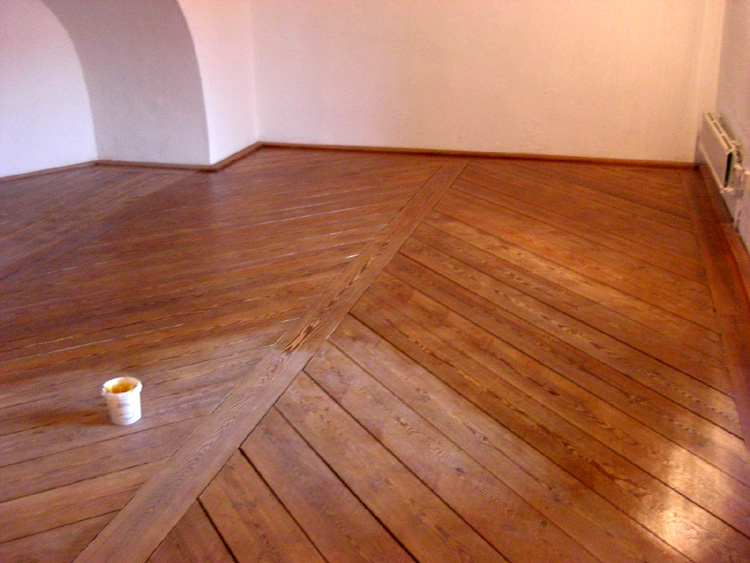Maintenance Of Linseed Oil Finished Floors
Cons of oil finished floors.
Maintenance of linseed oil finished floors. Linseed oil is a penetrating finish on hardwood floors that does not form a sealant on the wood like polyurethane but instead acts as a stain that enhances the look of your floors. Most use linseed or tung oil or a combination of the two as a base but soy sunflower china wood safflower hemp and other oils are also used. Following are steps for a hardening oil finish. Regular maintenance regularly vacuum or dust mop your floor to prevent sand or abrasive dust buildup that can scratch the floor finish.
This will help with your diy project with hardwood floors. The finish will tend to be a matte to satin. That said these finishes are not for everyone. A gloss finish can be achieved by applying a coating of wax to an oil finished floor but we do not recommend this course.
I assume buffing would make the floor look a little more shiny closer to satin water based poyurethane finish whcih is the look we would like but we are seriouly considering going with the oil because of the ease of touch up. We d like an oil finish that doesn t keep making the floor look darker and darker every time it is touched up. Woca oil finished floor will last virtually forever and will never have to be sanded. Important maintenance tips for oil finished wood floors.
By not coating the wood or giving it a shiny appearance linseed oil presents the wood in a natural way while still giving it the darkened appearance of staining. Standing water for any amount of time is not good for wood flooring no matter the finish type. Linseed oil is not completely denatured so it can encourage rather than discourage mildew growth. A wood floor finished with woca oil is resistant even to excessive wear and most liquid spills.
At least by today s standards. Requirements vary depending on the traffic and the finish but oil finished floors do require in addition to routine maintenance re oiling typically every two to three years for a residential job. Linseed oil does not harden sufficiently to offer enough resistance to abrasion to be a suitable deck floor preservative. Combined with the more textured face treatments that are popular with oil finished floors even with repairs and years of use many believe that oil finished floors only get more beautiful with time.
The primary downside of oil finished floors is the specific and critical maintenance they require. Linseed oil is one of the more common choices but because oils are a less common choice for flooring finishes you may be uncertain about how to best care for your linseed treated floors. Application for these finishes varies.















































